
ggrjr said:
mazdeuce - Seth said:
In reply to barefootskater :
Thanks, I'm having fun. With the exception of the cam location, it's fun to look at how similar V8's separated by 50 years are. They had the basic design down a long time ago.
Quick question for everyone. I need to move the automatic transmission and transfer case out to the shed. I don't anticipate using either one any time soon, but International has it's own bellhousing, so I'm not willing to throw away something I might have to hunt for in the future. Just yet anyway. Should I remove the gear from the transmission and throw it in with the transfer case? Fog them with WD40 or similar, bag them and forget about them for a while?
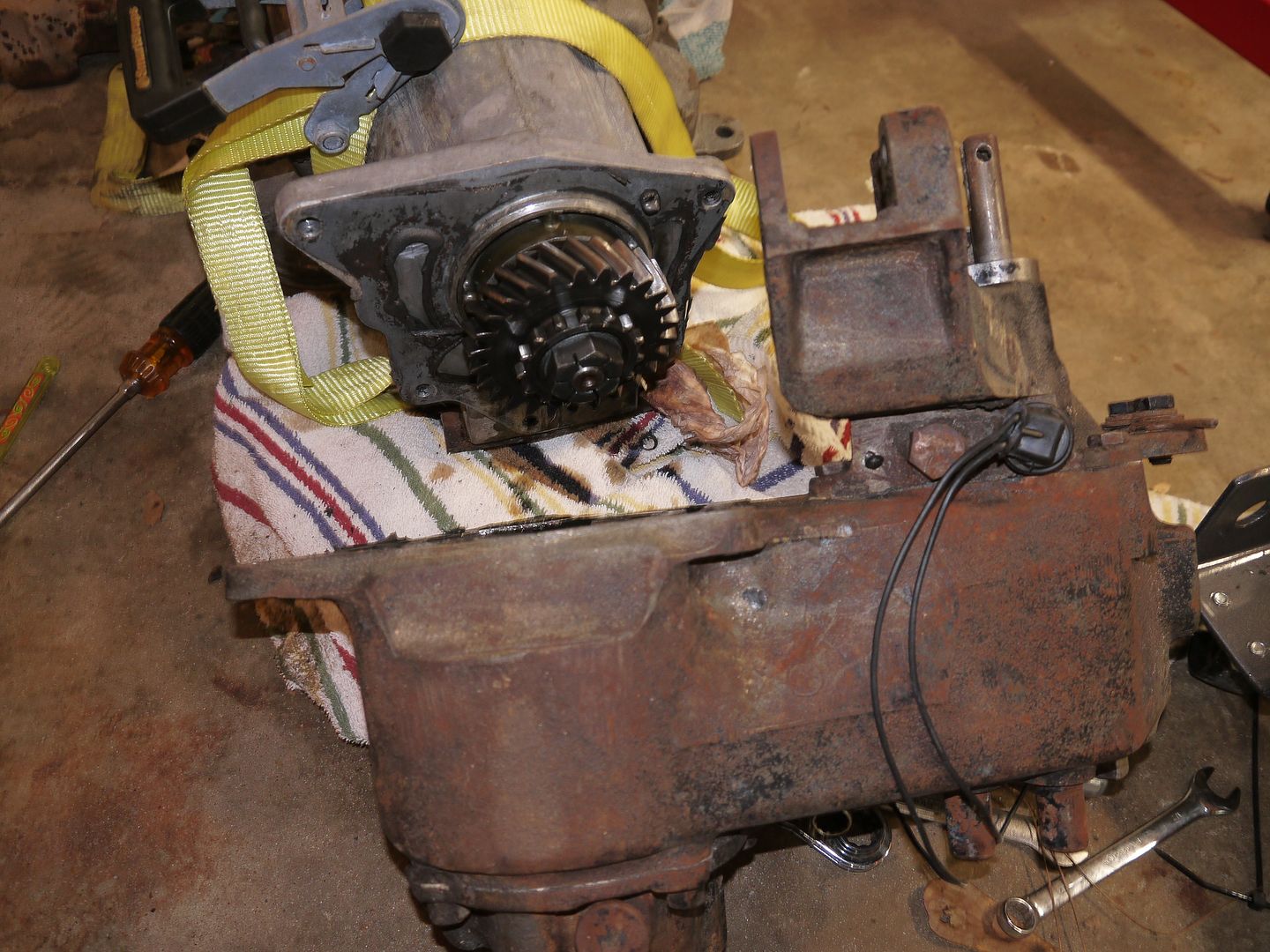
A little late to teh party. But for anything you want to protect from rust, this the ticket.
It was recommended to me by a packaging engineer at Caterpillar. It is used by most of teh big off highway equipment players including Cat and Deere, We used it on any un powder coated surfaces on equipment being stored outside at custmers, Never any complaints about rust.
It’s working on my truck, sprayed everywhere before last winter and it’s still nice underneath even on the uncoated parts after being exposed to road salt for 6 months.
In reply to ggrjr :
Thanks. Spending the day wandering about in Michigan's saltwater slushie of rusty doom has me thinking quite a lot about this right now. Time to pick some up.
Bundle up and stay warm the crew depends on yu!!
mazdeuce - Seth said:
In reply to ggrjr :
Thanks. Spending the day wandering about in Michigan's saltwater slushie of rusty doom has me thinking quite a lot about this right now. Time to pick some up.
No salt here, just 2 feet of snow in 24 hours. Salt don't mean nothing when it's coming down like that.
Today I met a guy who owns a dump truck and a 911 and they both shoot fire balls out of the exhaust. Deusenbergs, Baja racing semis, and a -6 degree warehouse full of some of the coolest trucks ever. A flood of pictures incoming after I get back to Texas, what a fun day.
That sounds ridiculous in the best way. Big trucks going fast make me so inexplicably happy. It is just so wrong in all the right ways to watch.
edit: can't type.
I really want to see this go Baja race truck style. There's so many slammed or "vanilla" restored semis, it'd be a shame not to do something different
Light reading.
I have so many bad ideas, you can't even imagine.
mazdeuce - Seth said:
Light reading.
I have so many bad ideas, you can't even imagine.
Which leads me to believe you should steer clear of the eggnog 
No, drink all the eggnog and then do it!
Im not sure how i can possibly enable you evenmore, seth. But theres a guy here in town with Rockwell a xles stacked up like cordwood. He also has a ton of ex military 4x4 heavy equipment.....
Dusterbd13 I say we meet him halfway!
(I have to drive to Brewton Al on monday... unfortunately in a rental per company regulations...)
That's like 8 hours closer...
Mad_Ratel said:
Dusterbd13 I say we meet him halfway!
(I have to drive to Brewton Al on monday... unfortunately in a rental per company regulations...)
That's like 8 hours closer...
That's just up the road from me!! Daphne AL. :)
In reply to onemanarmy :
Dunno. Didn't look too close, as i got out of 4x4 years ago. I went for diesel turbos.

Back from vacation. It was cold. I saw a bunch of cool stuff. Spent 40 hours driving back and forth (Mrs. Deuce flew so I got all the wheel time) and came up with all kinds of good ideas along the way. Photos are uploading.
To lead things off, the bear and the chair he was being interrogated in were both brought by Santa which is why we needed the truck instead of the R63. Cargo volume. We had a fun Christmas.

These tires would have been useful in the snow. It was a very white Christmas. Coolest tires I've EVER seen.
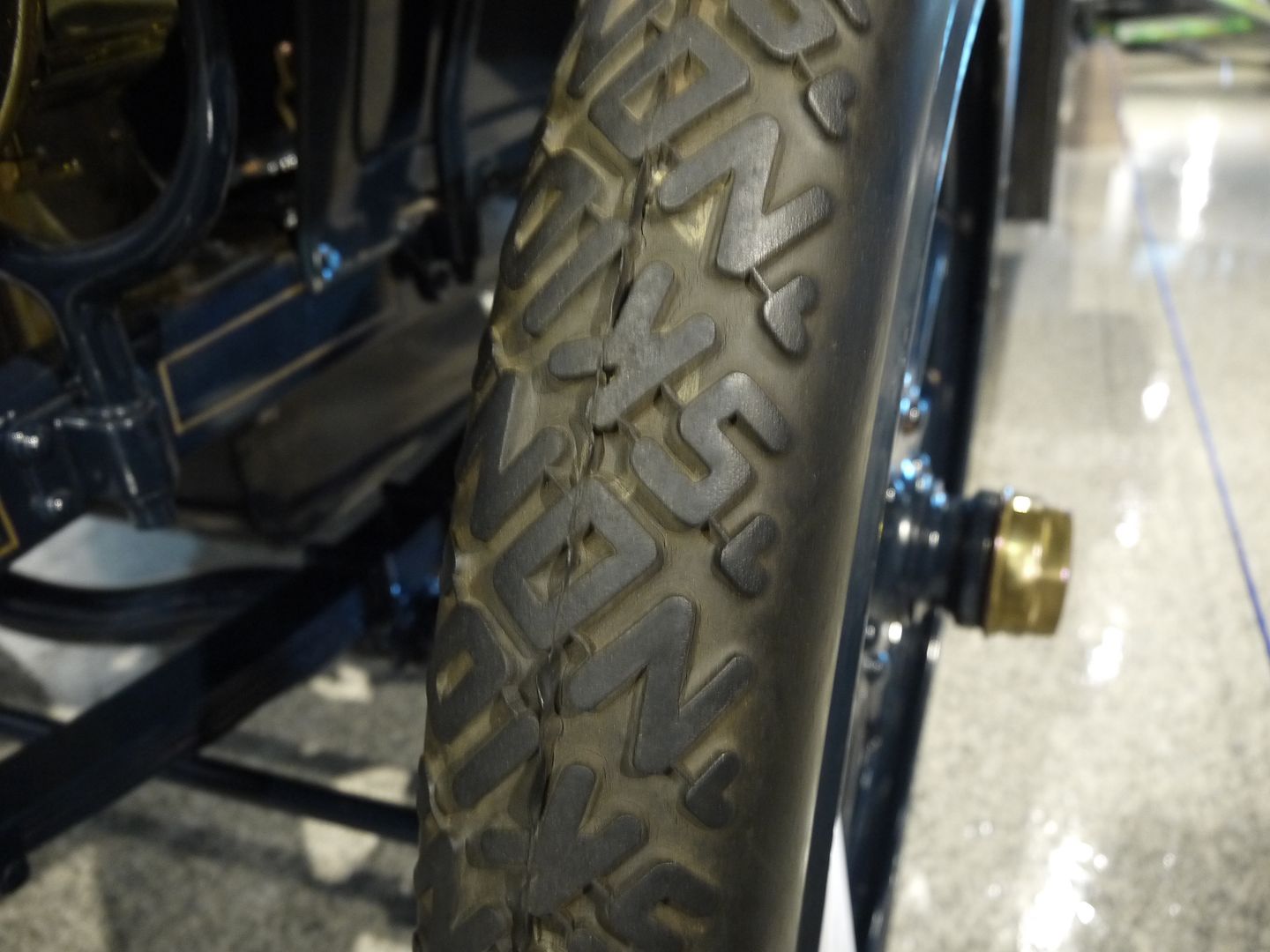
And this is the Baja Semi. I should have taken WAY more pictures. I was too blown away to really concentrate.
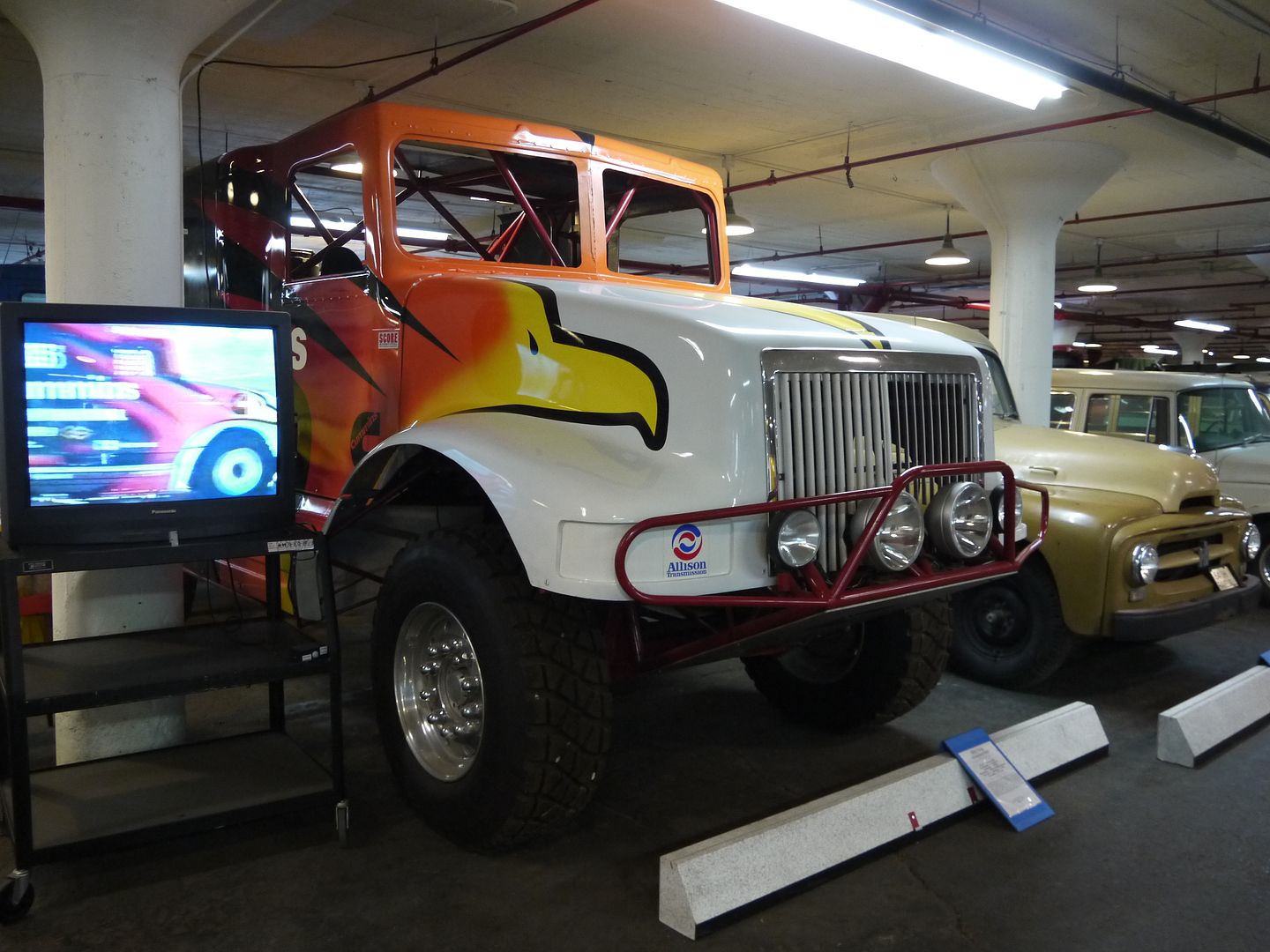
The real treat was being able to look at all the details. It's a full tube frame truck. The engine is just sort of hanging in the middle. Long travel rear suspension. 2wd. Just cool all around. I need to go back and look at it again.
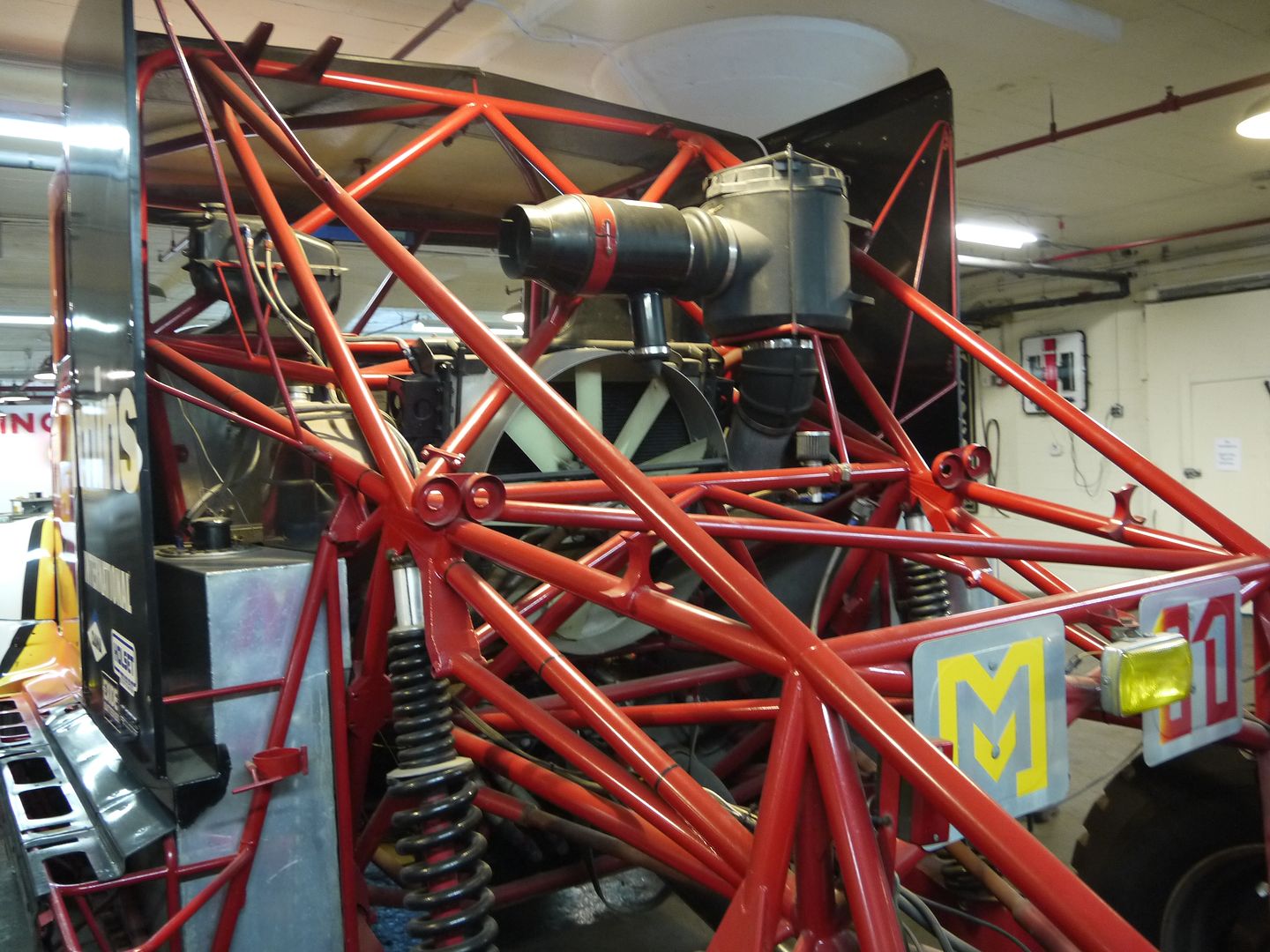
Some insights about timing, Great Gatsby Quotes, 50's cook books and a literal warehouse of awesomeness. I need to organize my thoughts.
Is that the National Auto and Truck Museum in Auburn Indiana?
I just saw another COE project on Garage Journal:
COE
Guy has a couple others as well, but he's not very local to you...

In reply to Trans_Maro :
It is indeed. Like the Alamo, the basement is where the action is at. 
In reply to XLR99 :
I can only dream of starting with something that clean and functional. That's a cool evolution of the mid-size line of International trucks. As near as I can tell it was in the late 70's-early 80's that the cab got wider like that. I still like the narrow cab and wide fenders on mine.
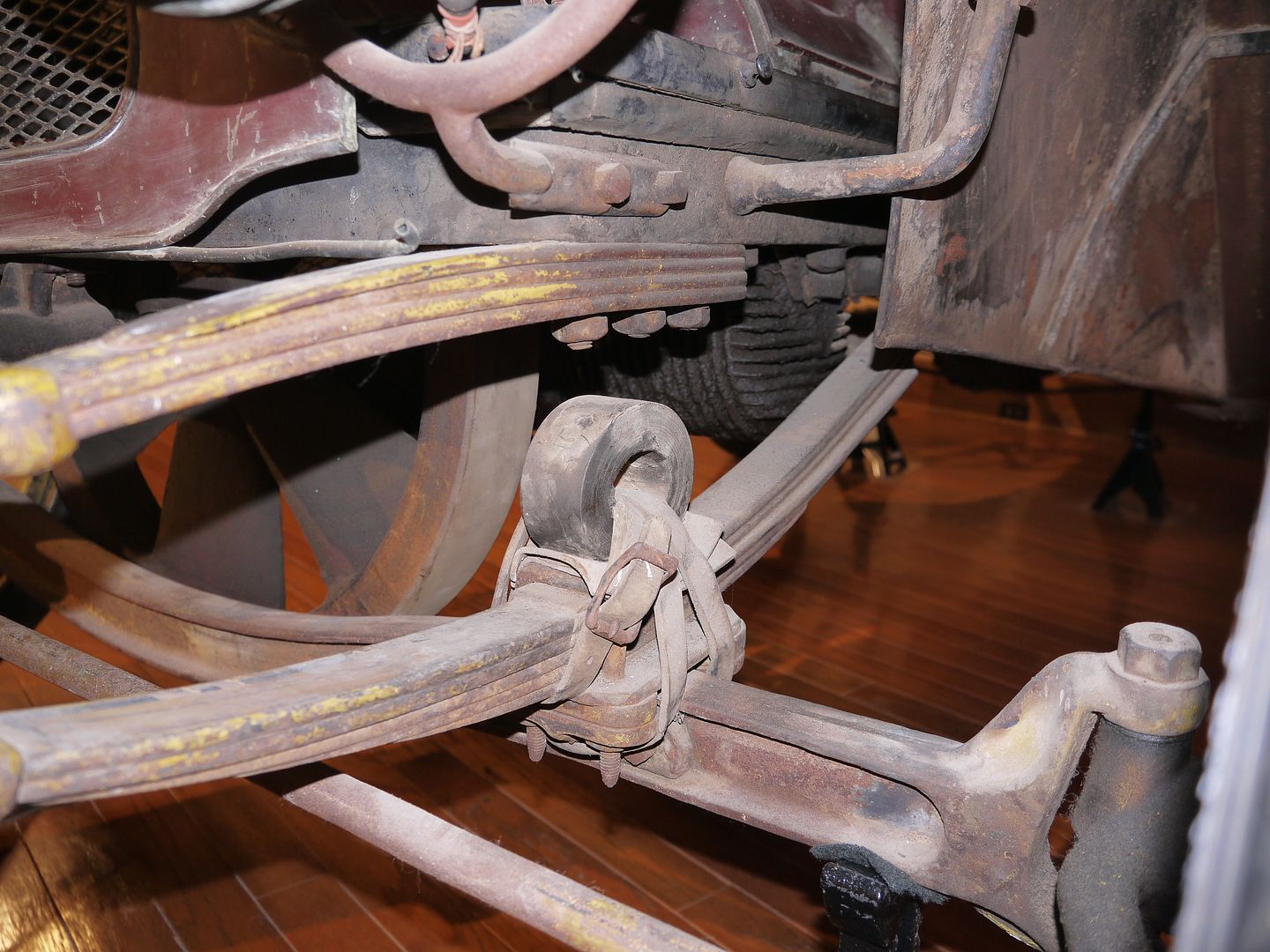
Above is a picture that I took at the Auburn Cord Deusenburg Museum in Auburn Indiana. It was amazing and I have more pictures coming. I took this one because it was such a great detail. A rubber doughnut held in place with leather straps for the bump stop. My truck still has chunks of rubber on top of the leaf springs to keep the axle from hitting the frame. When you look around at these old cars there is a TON of basic tech that has been around for over 100 years, and that brings me around to what I was contemplating on the drive up to Michigan, ignition advance, which is kind of where I was before I left for vacation.
We need to fire the spark plugs before the piston gets to TDC. In advance of TDC if you will. This is because the fuel/air mixture burns slowly in relation to all the spinny stuff that's flopping around in the block. The flame front travels a fairly constant speed, so in order to get the burn/push timing right you need to ignite it earlier and earlier as the piston goes faster and faster, and this is handled by the mechanical advance. Here is where my understanding gets fuzzy, but if I understand right, under load the engine is drawing more vacuum through the intake. There is a second advance mechanism that takes advantage of this signal and gives you more advance on top of your advance. There have been different ideas through time about where to draw this vacuum signal from, but the idea is pretty much the same, under load the engine needs even MORE advance and this is how the system sees and adjusts for it. If anyone wants to explain the physics of why to me I'd love to learn more.
Anyway, thinking about mechanical/vacuum advance, and how they work together, and turning things around in my head made a light bulb FINALLY turn on about ignition/load tables with modern fuel injection. I'm a simple man and couldn't quite figure out the why behind these complex multi dimensional tables. I'm still probably a long way off, but contemplating the humble distributor on the COE has taught me something. Maybe.
To bring this back to the car above, it was a horizontally opposed air cooled twin, chain drive, and manual ignition advance on the dash. Thinking about the distributor also gave me insight as to how you would fiddle with that knob as you started and drove this very simple car. I now want to own, or at least drive, a car that requires me to adjust ignition timing manually as well as fuel inject a car from scratch. I need to get back to work or I'm never going to get enough done to get everything done.
Those are both fantastic museums.
Did they still have the GM Futureliner there?
Did you see the International Scout III upstairs? It's the only one.
I very politely asked if I could sneak behind the ropes and have a closer look at the two Duesenberg Indy cars upstairs. The attendant very kindly let me do that.
The NATMUS museum is the old Cord assembly plant, It was amazing to stand on the shop floor where one of the cars I work on regularly was assembled.

tgc328i
New Reader
1/7/18 12:17 p.m.
In reply to mazdeuce - Seth :
I believe under load, with a carburetted engine, you will see less manifold vacuum due to the throttle plate being further open when under high engine load, reducing the differential pressure across the throttle plate, resulting in reduced manifold vacuum (higher pressure in the manifold). The best real world example I can provide of this is my old 53 International 1-ton pickup that had vacuum operated windshield wipers (hose off the intake manifold to the w/w mechanism) that would stop working when you floored the accelerator to pass someone on a two lane road in the rain. Definitely an unfortunate design feature that led to electric operated windshield wipers on later models.
LOL, how many people still get Paul Reubens references?

tgc328i is correct that manifold vacuum drops with throttle opening/load. It's also a bit of an oversimplification to say that the flame front travels at a constant speed, as lean mixtures burn more slowly.
EDIT 2, because I didn't segue well; the engine wants to run WOT, which is what you have if you have no throttle plate; as the throttle is closed, the engine is still trying to suck down All The Air, but the restriction of the plate causes the region between throttle and valves to be at less than ambient atmospheric pressure. At WOT, manifold may be at or near ambient (turbos aside), on down to significant vacuum at the throttle's idle setting. As you open the throttle and the restriction is reduced, manifold pressure comes up and while each cycle pulls in the same volume, the density is higher, so a larger mass of air enters (which is why speed-density management uses manifold absolute pressure for "load", while Mass Air Flow measures what actual mass of air is trying to cool this sensor wire in the intake tract as it enters the engine).
As load increases, more air and fuel make it into each cylinder; pressures get higher. Naturally the compression of the pocket of unburnt air/fuel mixture by the expansion of the burning air/fuel mixture raises the temperature of the unburnt mixture. All this is timed against the combustion chamber's volume getting smaller 'til TDC, then larger again. If the compression heating of the unburnt part is too extreme too early, it will more or less compression-ignite (diesel-ish), but violently, as detonation/knock.
Retarding timing with load allows the piston to be on its way back down, expanding the combustion chamber and making use of the controlled expansion of the burned mixture.
I am a not-expert with a copy of the Ricardo book. But I think that's some of a summary of why timing generally advances with speed, and retards with load/advances with lessening load. EDIT: removed closing chunk which I think is based on so little practical data as to not be helpful or add to understanding.
Now that you’re home sit back, start watching the Dakar updates on TV tomorrow, and let the good ideas flow.
The ACD museum and NATMUS are amazing places to visit. I went to college just a half hour north of there. Highly recommended for anyone who is going to be in the area.
The mix of old and "new" technology is so interesting. Front wheel drive and pop up headlights in the Cords. Or a Deusenberg with a clock in the rearview mirror. Not the little digital things you get in the chunk of plastic with OnStar, but a real piece of glass with an actual mechanical clock set into it.













































